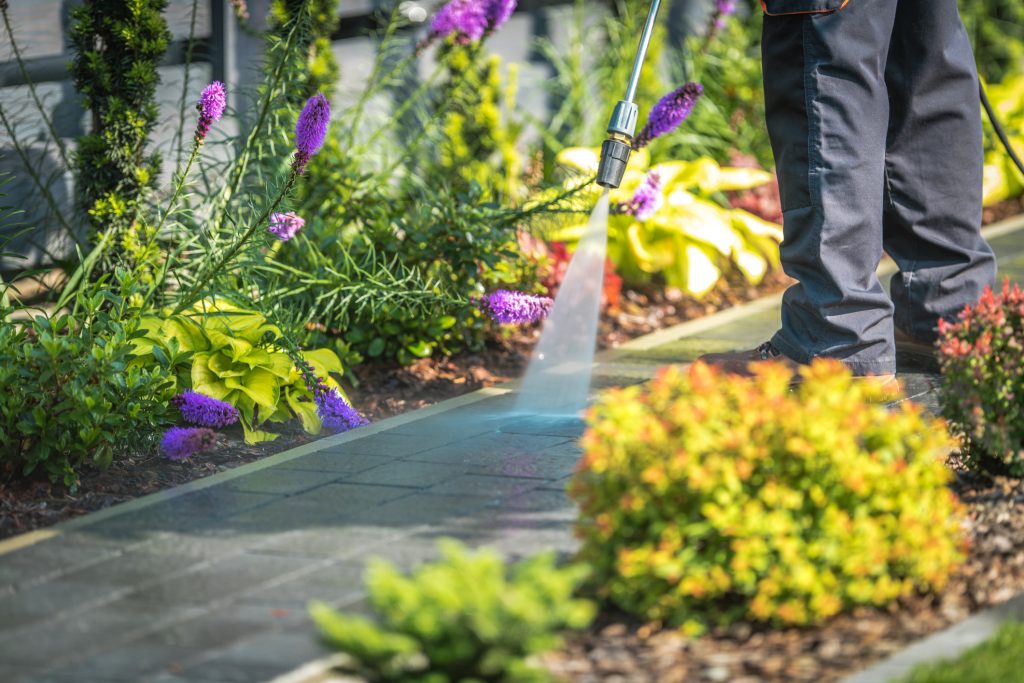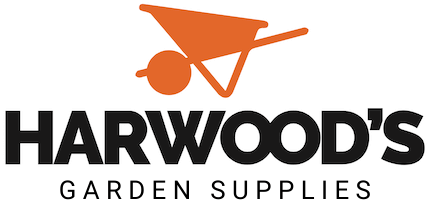Pavers are a beautiful addition to hardscapes on your property. If you care for it well, it will last a long time and add value to your place.
If done correctly, pressure Cleaning pavers will help them stay beautiful and pleasant for longer.
However, inexperience in pressure cleaning may damage the pavers. There is a right way to use pressure washers for pavers, and there is a wrong way. If you do not know how to use one properly, it may cost you.

What is Pressure Washing or Pressure Cleaning
Pressure cleaning is washing hard and usually flat surfaces with a machine that expels water at a very high speed and force. This force is measured by pound per square inch (psi), bar, or pascal. The most commonly used is psi.
How Pressure Washing Damages Pavers
Pressure washing is a convenient and efficient way to clean pavers. We see so many people use it and know that it works well.
When done correctly, pressure washing will give you the results you want—a clean and well-maintained paved area.
However, when one is inexperienced in pressure washing, that’s when damage could happen.
Since pressure washers expel water at such a high force, it takes some care and skill to operate.
Listed here are possible reasons for damaging your pavers through pressure cleaning.
Staying in one spot for too long
We are not talking about minutes here, but seconds. Staying too long in one spot with your pressure washer could cause damage to your pavers.
The recommended method for using pressure washers is to keep moving while constantly sweeping the nozzle or surface cleaner from side to side.
If you stay just a few seconds longer, it may be a disaster to your pavers.
Using the wrong attachments
Pressure washers come with various attachments and nozzles where the water comes out.
The nozzles enable water to come out at different angles—zero, 15, 25, or 40 degrees. They can also be stationary or rotary.
Professionals also use surface cleaners where water is expelled from a rotating tube perpendicular to the surface.
Nozzles with less angle are trickier to use for novice home users. However, using a larger angle than necessary may make cleaning ineffective.
So that’s where it could get confusing for the homeowner who wants to clean their own pavers.
Overall inexperience of the user
You can cause damage to your pavers through pressure washing simply because of inexperience.
Like what was mentioned above, it could be a combination of not using the right nozzles and not being able to operate the machine properly.
While it can be enticing to watch other people do it, pressure cleaning is not as simple as it seems.
Professionals make it look easy, but keep in mind that they have a lot of experience in pressure cleaning.
What Damages Can Pressure Cleaning Do on Pavers
Pitting and grooves
Pitting and grooves are unsightly if they are not part of the paver’s original style and design.
This kind of damage may result if you make a mistake of using the wrong attachments or by staying too long on one spot with a pressure washer.
Cracking and chipping
If you use the wrong attachment or the angle you point the nozzle is incorrect, it may chip off parts of your pavers.
Too much force can cause softer or already weakened pavers to crack.
Removal of sand and fillers
Unless your intention is to re-sand after pressure washing, you do not want to remove the sand filling on your pavers.
It is hard to avoid washing away the sand and paver fillers, especially for the more inexperienced people.
Call a Professional
If your pavers need deep and proper cleaning, it will be best to call a professional like Harwood’s Garden Supplies to help you with the job.
The money you will spend on hiring experts is worth it to avoid the trouble and possible additional cost if you damage your pavers while you DIY the cleaning. More information about our pressure cleaning services here.
[elementor-template id=”5226″]
